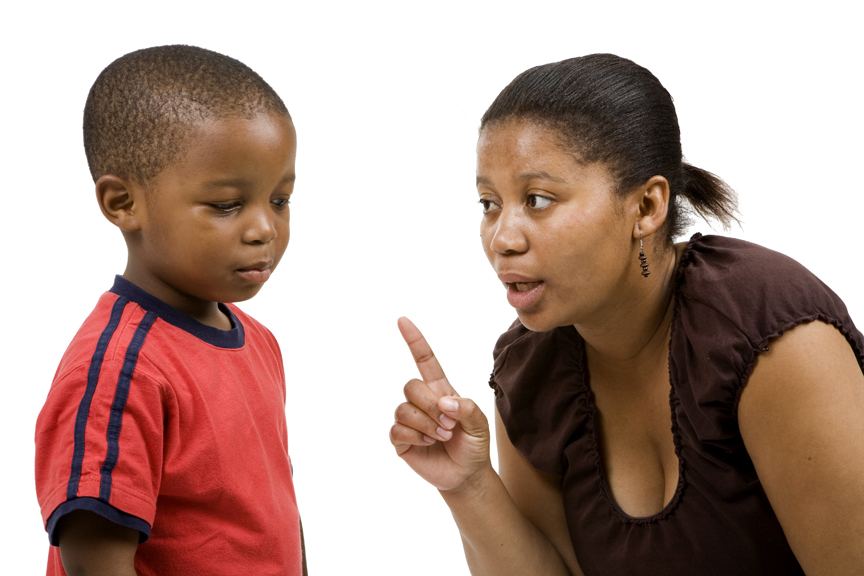- Behavior
- Health
- Parenting
BLOG: Set limits and give choices when disciplining preschoolers

Question: My 3-year-old screams at me and hits me when he is upset, usually when I tell him that he can't have something. A friend of mine told me to put him in time-out, but it hasn't been working. It actually seems to make things worse. What else can I do?
Answer: Children often display many behaviors that are frustrating to parents. They don't do this because they want to annoy their parents, though. They are simply attempting to communicate their wants and needs in the only ways they know how. A young child does not have the skills to say what is bothering them or what they need. Therefore, they show us when they are upset through their behavior. And feelings drive behaviors.
A parent’s job is not to punish but to teach their child the correct behaviors. Parents can establish this by setting limits. Limits are successful when they are age appropriate; given only when necessary; are kind, but firm; and are consistent. Also, when setting limits, the adult shouldn't be judgemental about the child's behavior or overly emotional. The goal is to ensure the child and the surrounding environment are both safe.
In his book, Play Therapy: The Art of the Relationship, Garry Landreth gives a simple way to set limits and give choices, using logical consequences. He uses a model referred to as ACT:
- Acknowledge the feeling. ("You seem really upset.")
- Communicate the limit.("People are not for hitting.")
- Target an acceptable alternative. ("If you're upset, you can hit the Play-Doh or your teddy bear.")
Experts recommend parents state the limit two or three times before moving to the next step, which is giving choices.
Choices, once again are age-appropriate; given when necessary; are kind, but firm; and keep both the child and the environment safe. Choices help children learn to problem-solve and take responsibility for their own actions. Choices are not good or bad. They focus the center of control within the child to reduce anger and frustration while keeping the situation safe for everyone. When giving choices, limit the options to two.
Offering choices would sound like this, based on the example above:
Limit: “You seem really upset, but people are not for hitting. You can hit the Play-Doh or your teddy bear.”
Choices: “If you choose to hit me, you choose not to play right now. If you choose to hit the Play-Doh, you choose to continue playing. You can choose.”
Remember, choices are a natural consequence of the child’s actions. If your child continues to hit you, you may say, “The minute you chose to hit me was the very minute that you chose to stop playing. You are not happy with your choice. Maybe next time you will make a different choice.”
Based on your child’s age (3 years old), experts recommend that the limit be given for no longer than five minutes. Once three to five minutes pass, you may allow your child to play again while offering an opportunity to make different choices.
Hilary Jacques is director of the Child and Family Center in West Palm Beach for Center of Child Counseling in Palm Beach County.
You May Also Like
-
- Behavior
- Health
- Parenting
Is your preschooler sleeping enough? And how does it help?
Ten to 13 hours a day, including naps, are recommended for children ages 3 to 5. Read on for more expert sleep advice. …
Read More -
- Behavior
- Education
- Parenting
Set clear limits for your preschooler to learn self-control
"All children misbehave. It is our job to socialize them, to teach them right from wrong," a local psychologist says. Read on for expert tips and advice on how to tame your child's …
Read More
Related resources
-
- Behavior
- Education
- Health
211 Palm Beach Treasure Coast
Help Me Grow – information, guidance and developmental assessment of children up to age 8
2-1-1 Website Email -
- Behavior
- Parenting
Community Partners
Positive Parenting Program, known as Triple P — free seminars and one-on-one guidance to help families improve their parent-child relationships
561-841-3500 Website Email -
- Behavior
- Parenting
Center for Family Services of Palm Beach County
Positive Parenting Program, known as Triple P, offers free seminars and one-on-one guidance to help families improve the parent-child relationship
561-616-1222 Website Email -
- Behavior
- Health
- Parenting
Boys Town South Florida
Based in West Palm Beach, support, services and information for at-risk children and their families in South Florida
561-612-6000 Website -
- Behavior
- Health
- Parenting
Center for Child Counseling
Mental health services in Palm Beach Gardens for families, specializing in play therapy for children who've experienced trauma
1-800-480-1899 Website Email
